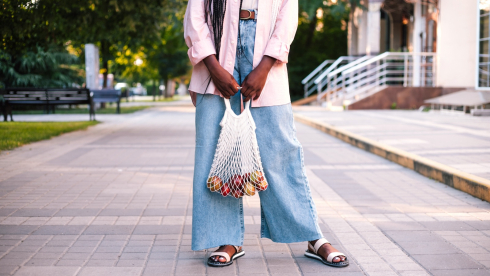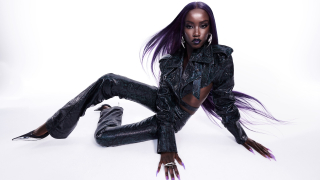Conversations centered on the great cultural impact of reality television has would go a lot smoother if select critics wouldn’t sound so sanctimonious in their rants. Case in point: actor Brian White, whose pretentious and self-righteous musings on the subject saw him belittle Black people, and in particular, Black women. When asked about Tyler Perry’s detractors, White accused them as essentially not being able to handle the truth.
Speaking with Hello Beautiful, White claimed that Perry “holds a mirror up to people” and that “stereotypes are not stereotypes today” because they are the majority. I would like to think he’s referring to a fun house mirror to coincide with his extremely flawed logic. Indeed, White made the assertion “The most prevalent image in ‘urban society’ right now is women like NeNe [Leakes].” This notion is only true in his and NeNe Leakes’ dreams.
Actually Brian, there are a whole lot more Black women who don’t embody behavior exhibited on The Real Housewives of Atlanta and Love & Hip Hop beside your mama and sisters.
When he wasn’t throwing Black women under the stereotype bus, White was championing the viewing habits of the Brits at the expense of Blacks. On the success of the Idris Elba starring crime drama, Luther, he noted that “British don’t see color they see quality.” That colorblindness doesn’t seem to impress Elba, who once told the Hollywood Reporter that the British could learn a thing or two from the Americans and “shouldn’t shy away from demanding more diversity on British TV.”
White is also wrong with his quip that “Most African Americans were not even aware of Luther because it’s not a stereotypically urban themed show.” Perhaps that has more to do with the limited reach of BBC America because quite a few cop procedural shows perform well among Black households according to Nielsen.
The other praise Brian White had to spare went to programming in Africa and France. Supposedly, when it comes to kind of reality TV found stateside versus markets abroad, those countries “don’t connect with that message.” Funny, on a 2007 episode of Big Brother South Africa viewers were subjected to sights of a comatose young woman having her vagina penetrated by a male housemate’s fingers – earning headlines as a “rape horror show.” And in 2010 there was a French reality show called The Game of Death, which sought to show how well meaning people could be manipulated into becoming torturers or executioners.
Therein lies the problem with critics of his ilk: They speak about their own as if they’re engaging in conduct so different from everyone else. That is simply not true and a man seeking to carry the banner of honesty should lead by example. The same goes for him promoting education but acknowledging that he’s never watched the very shows he’s ridiculing. If he were more informed, he would know that The Real Housewives of Atlanta is matched in foolishness by the other (non-Black) shows in the franchise and that Love & Hip Hop isn’t the most violent reality show on Vh1, as that distinction belongs to Mob Wives
The imbalance that exists in depictions of Blacks started long before reality TV’s emergence. Tyler Perry’s often two-dimensional depiction of Black women isn’t rooted in what he sees on VH1 and Bravo, but the perceptions of them that exists within his own mind.
Black people are just as capable as embracing variety as everyone else is – we just aren’t presented with it often enough. If Brian’s intentions were to push Black people to do better, in future interviews he might want to start with giving us the benefit of the doubt.
Michael Arceneaux is a Houston-bred, Howard-educated writer currently based in Los Angeles. You can read more of his work on his site, The Cynical Ones. Follow him on Twitter: @youngsinick













